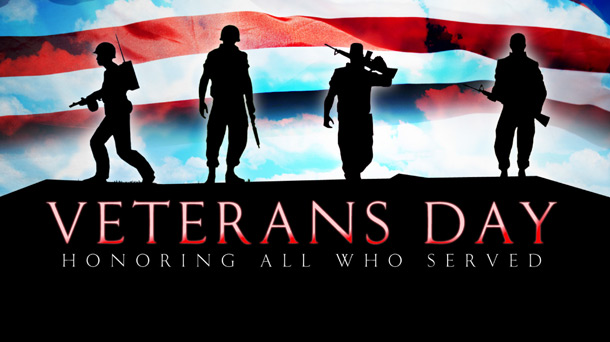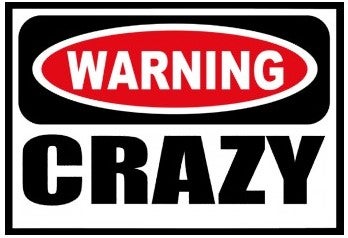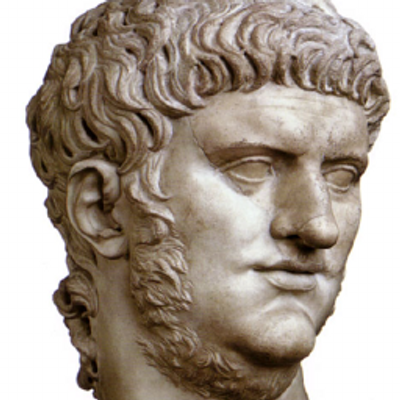Essay:
The Great Gatsby and its Relevancy in
Reference to Today’s Social Issues
The Great Gatsby by F. Scott Fitzgerald is a great
American novel written in 1925. The protagonist is named Nick Carraway
and the story follows his experiences for a summer of living amongst the rich.
The novel covers topics such as identity, marriage/love versus lust,
classicism, alcoholism, women’s rights, abuse, transportation, corruption, and
wealth. One prominent theme that stuck out clearly to me is the correlation
between one’s identity and their class. The character’s class and/or what class
they long to be in define who they are and how they act, specifically amongst
the rich.
Two situations that really stuck out to me characterising
how the rich act, are Gatsby’s party in chapter three and the scene where
Gatsby gets out of a speeding ticket. In both situations there is a sense
of entitlement. At the party people just show up uninvited not even
knowing anything about the host. In reference to the people at the party the
novel says, “Sometimes they came and went without having met Gatsby at all.”
(Fitzgerald, 45) They aren’t there to see the host, they just feel entitled to a
good time. They don't seem to care about anyone but themselves. There is
also Gatsby who gets caught speeding but simply for being wealthy and knowing
the right people he gets out of it. All Gatsby has to do to get out of his
ticket is show the policeman a picture, “Taking a white card from his wallet he
waved it before the man’s eyes.” (Fitzgerald, 74). A middle or lower
class person can not just wave a white card and get out of a speeding ticket.
I think it speaks to how the world idolizes money. I found that scene
specifically interesting since later in the book we find out Gatsby is breaking
the law to make his money yet his money gets him out of trouble with the law.
It just goes to show if you have money you have power and if you have power you
are going to act more entitled.
One character that really embodies money, greed, and how
it affects who a person is is Daisy. One thing that really defines Daisy
is how she chose to marry Tom instead of waiting for Gatsby to return from the
war. Tom was her easy answer because he was there and rich, two things Gatsby
was not. She claims to love Gatsby, as proven through her interactions with him
after chapter five and how she acted the night before her wedding, but in the
end she betrays him. She lets him take the fall for Myrtle's death. Then
when he dies she does not even attend his funeral. She is very entitled
and greedy. She never cared about Gatsby, for her, it was always about
money and the sense of security that came with it.
The problems among the upper class of The Great Gatsby are
still problems today as proved in a study done by US psychologist Paul Piff, "As people grow wealthier, they are more likely to feel entitled, to become meaner and become meaner and more likely to exploit others, even to cheat." In the same study, he found,“The richest students were more likely to consider ‘stealing or
benefiting from things to which they were not entitled’ than those from a
middle-class or lower-class background.” The rich feel entitled which,
according to an article from Time Magazine, “could perpetuate a deepening lack
of empathy that could fuel narcissistic tendencies.” One thing that stuck
out to me about this quote is the lack of empathy. It reminded me of how
after Gatsby dies everyone goes back to their lives uneffected. Only Nick, Mr.
Gatz, Owl Eyes and Gatsby's servants attend the funeral. The others all
abandon him in his death. People felt entitled to Gatsby for a good time.
They never cared about him. It was all about his money and his
parties.
The Great Gatsby is an amazing novel pointing out the problems with the upperclass. Fitzgerald points out the emotional withdraw, greed, and entitlement of the upperclass. And although the novel was written a little under a century ago, the social commentary still applies. Fitzgerald recognizes the appeal of money but warns against throwing ourselves into the American Dream because of the corruption that comes with it. I personally felt he wanted you to realize how money in the end really means nothing, that the most important thing is making connecctions with people.
Sources:
- Manne, Anne. "The Age of
Entitlement: How Wealth Breeds Narcissism | Anne Manne." The
Guardian. Guardian News and Media, 2014. Web. 06 Sept. 2016.
Szalavitz,
Maia, and Maia Szalavitz. "Wealthy Selfies: How Being Rich Increases
Narcissism | TIME.com." Time. Time, n.d. Web. 06 Sept. 2016.
Review:
This book has one one of the most beautiful thing I have ever read, "The most grotesque and fantastic conceits haunted him in his bed at night. A universe of ineffable gaudiness spun itself out in his brain while the clock ticked on the washstand and the moon soaked with wet light his tangled clothes upon the floor. Each night he added to the pattern of his fancies until drowsiness closed down upon some vivid scene with an oblivious embrace. For a while there reveries provided an outlet for his imagination; they were a satisfactory hint of the unreality of reality, a promise that the rock of the world was founded securely on a fairy's wing."
I just love this paragraph so much! I think its so beautiful. I have it hanging on a bulletin board in my room. It just has such vivid imagery. And I relate a little bit because I fall asleep to day dreams.
I LOVE THIS BOOK SO MUCH! It is so beautifully written and all the messages in it are so true! It's so heart breaking in its reality! I highly recommend it though I assume if you've made it this far then you already have.
Essay:
Rhetorical Strategies in the Catcher in the Rye
The Catcher in the Rye by J. D. Salinger, written
in 1951, is often taught in high schools because of its commentary on
adolescence, authenticity, and self identity. The book is told from the
perspective of Holden Caulfield. Holden tells the reader the story of a
weekend bumming around New York City that contributed to him ending up in a
mental hospital. Salinger employed many different rhetorical strategies to
express the struggles of adolescence including, figurative language, motifs,
and a unique writing technique.
Salinger employed a lot of figurative language. He used
symbolism in objects or places such as the red hunting hat, the carousel, and
the Museum of Natural History. He also employed things like irony and
allusions. One prominent example of both allusion and symbolism is the novel’s
title, the Catcher in the Rye. Salinger draws this title from Robert
Burns poem Comin Thro’ the Rye. He also uses it to get across one of the
main points in his book. The poem says, “If a body meet a body comin thro’ the
rye.” (Burns) but Holden mistakes the lyrics as if a body catch a body. When
talking to his sister about what he wants to be he says, “‘I keep picturing all
these little kids playing some game in this big field of rye and all.
Thousands of little kids, and nobody’s around-nobody big I mean-except
me. And I’m standing on the edge of some crazy cliff. What I have
to do, I have to catch everybody if they start to go over the cliff-I mean if
they’re running and they don’t look where they’re going I have to come out from
somewhere and catch them. That’s all I’d do all day. I’d just be the
catcher in the rye and all.” (Salinger, 191) In this Salinger uses symbolism.
By Holden saying he wants to be the “catcher in the rye” he is really
saying he wants to protect the children from the adult world. This is
further supported when Holden is at his sister’s, Phoebe, elementary school and
he sees the word f--- you written on the wall. Holden said, “It drove me damn
near crazy. I thought how Phoebe and all the other little kids would see it,
and how they’d wonder what the hell it meant, and then finally some dirty kid
would tell them-all cockeyed, naturally-what it means, and how they’d all think
about it and maybe worry about it for a couple of days.” He
doesn’t want the kids to worry about the adult world like he has to. He wants
things to stay the same and not have to face the adult world. Salinger is
trying to show the feeling of impending doom and anxiety that can come along
with adolescence, growing up, and entering the scary adult world.
Another way Salinger got his message across was using
motifs. The most notable being sexuality. Throughout the novel Holden
often brings up his infatuation with women, how sexual his peers are, and his
virginity. It is used to emphasize two things, Holden’s fear for change and the
appeal yet fear of the unknown adult world. Probably the most famous
scene of this novel occurs in chapter 13 when Holden orders a prostitute at a
hotel. While preparing for her to come up, Holden gives us this information, “I
was starting to feel pretty sexy and all, but I was a little nervous anyway.
If you want to know the truth, I’m a virgin. I really am.” (Salinger,
103) Once the prostitute arrives Holden second guesses his decision and doesn’t
end up having sex with the prostitute. He ends up saying “‘Don’t you feel like
talking for a while?’ I asked her. It was a childish thing to say but I was
feeling so damn peculiar. ‘Are you in a very big hurry?’” (Salinger, 106)
Holden is nervous about losing his virginity. He is very innocent and has
this romanticized way of looking at the world. One word to focus on is
the last bit of dialogue is hurry. Salinger is commenting on the hurry for
adolescents to grow up and face the world unprepared.
Salinger employed a specific writing technique to achieve his
purpose. The story is written as a flash back and as a stream of
consciousness. Holden writes what he feels is appropriate and he does so
unapologetically. For example the novel opens with Holden saying, “If you
really want to hear about it, the first thing you’ll probably want to know is
where I was born, and what my lousy childhood was like, and how my parents were
occupied and all before they had me, and all that David Copperfield kind of
crap, but I don’t feel like going into it, if you want to know the truth.”
(Salinger, 3) proving he is writing only what he views as important. It allows
for Holden’s true thoughts the be exposed with no filter. It allows for
Salinger to show Holden’s innocence and fear for the adult world. Using
this technique Salinger is able to show not only how the “phony” adult world
treats Holden but what it does to him mentally.
Salinger employed many different rhetorical
strategies to express the struggles of adolescence including, figurative
language, motifs, and a unique writing technique in The Catcher in the Rye. The
novel is a beautifully complex coming of age story about the pressures of
growing up and the kind of world you have to face as an adult. It is about
struggles teenagers can still relate to today. There are no instructions
or warnings for adolescents entering the adult world. It is full of phonies and
corruptions. Salinger recognized the struggles teenagers must face.
Yet even though in the end Holden ended up in a mental hospital, Salinger
gives the reader a glimmer of hope in the second to last chapter when Holden
says, “My hunting hat really gave me quite a lot of protection, in a way, but I
got soaked anyways. I didn’t care, though. I felt so damn happy all of a
sudden, the way old Phoebe kept going around and around. I was damn near
bawling, I felt so damn happy, if you want to know the truth.” Salinger wanted
the world to know that even though the adult world is dark and scary there is a
chance of happiness. That there is a time and place for innocence and there is
nothing wrong with wanting to be the catcher in the rye.
Review:
I think this book is so underrated. I swear 9 out of 10 people I've talked to didn't like this book and that is crazy to me! I really love the stream of consciousness, passive voice writing style. I think it breeds sympathy in the reader. And as a teenager I really related to the fear of adulthood and loosing your innocence. I really love coming of age stories, A Separate Peace is my favorite! I think I like them because I had a traumatic experience that snapped me into the harsh reality of the world when I was twelve and these books explain my emotions I felt. I didn't push anyone of a tree or go crazy as my traumatic experience, I think I'll write a blog posted about what happened at a later date. Anyways, while I think not all teenagers are crazy I think our fears and strong emotions are accurately voiced in The Catcher in the Rye and I really loved it.
I hope you have a fantastic day,
Megan












